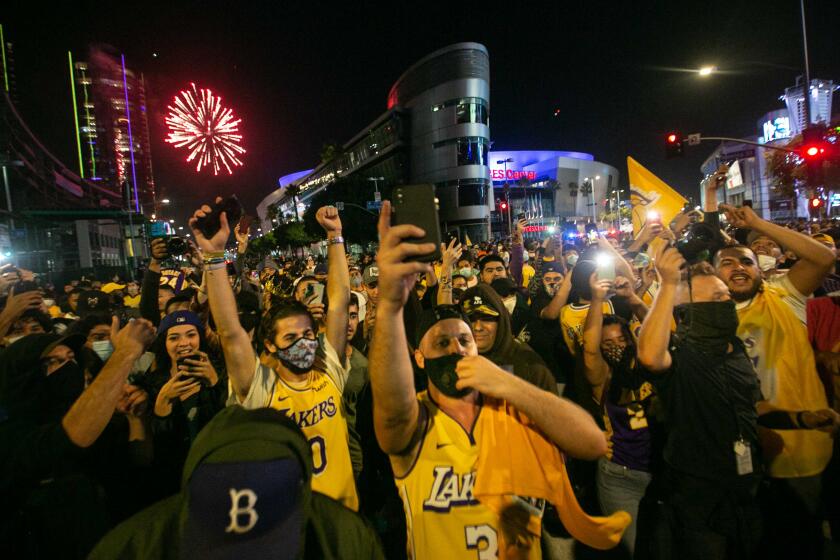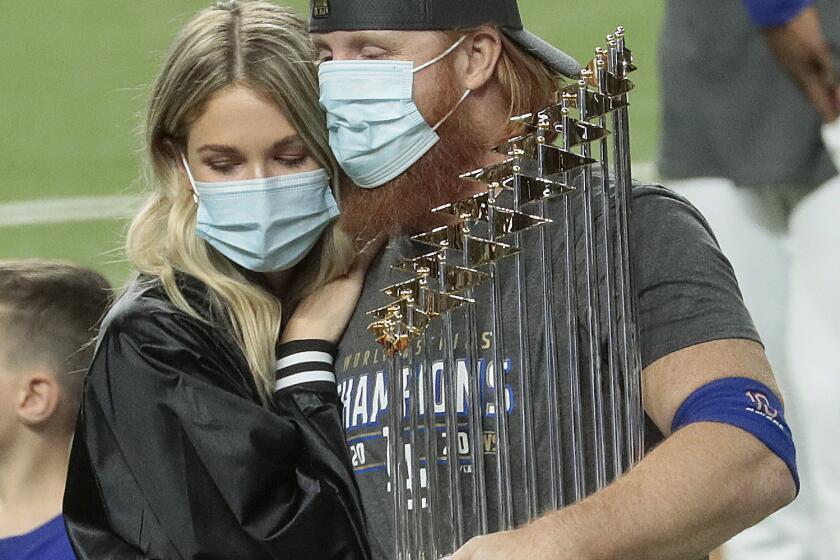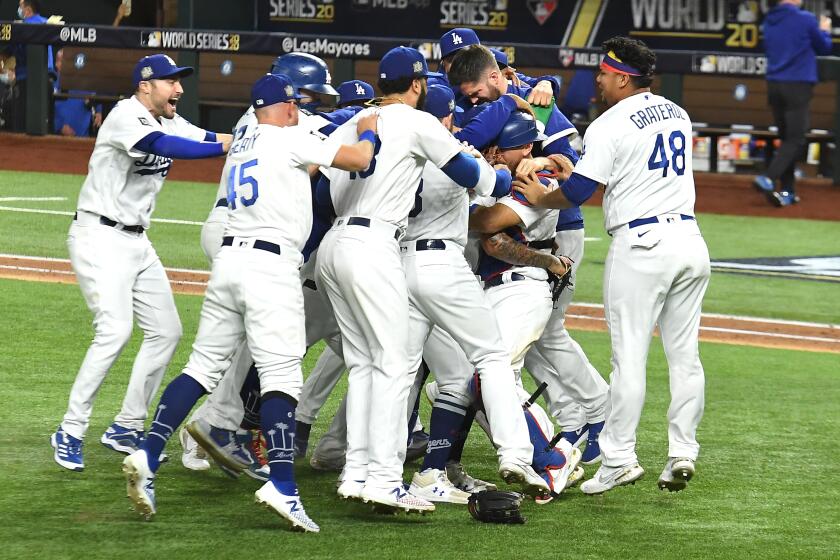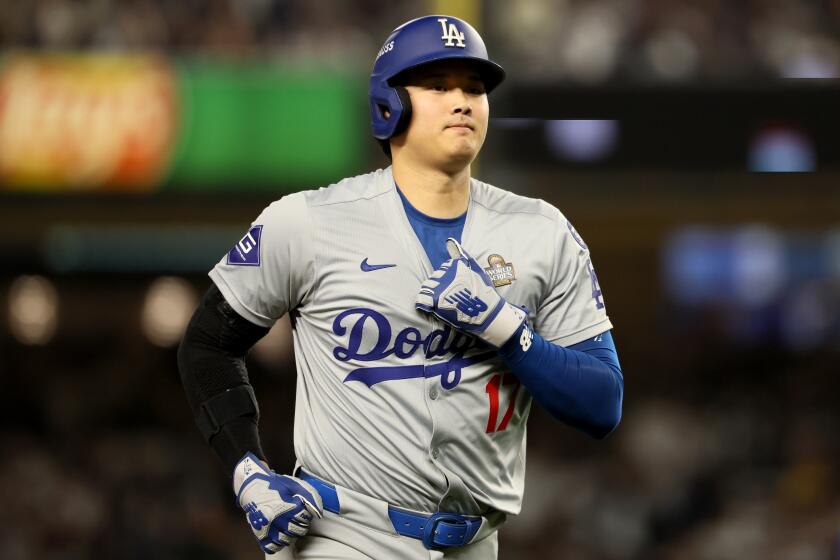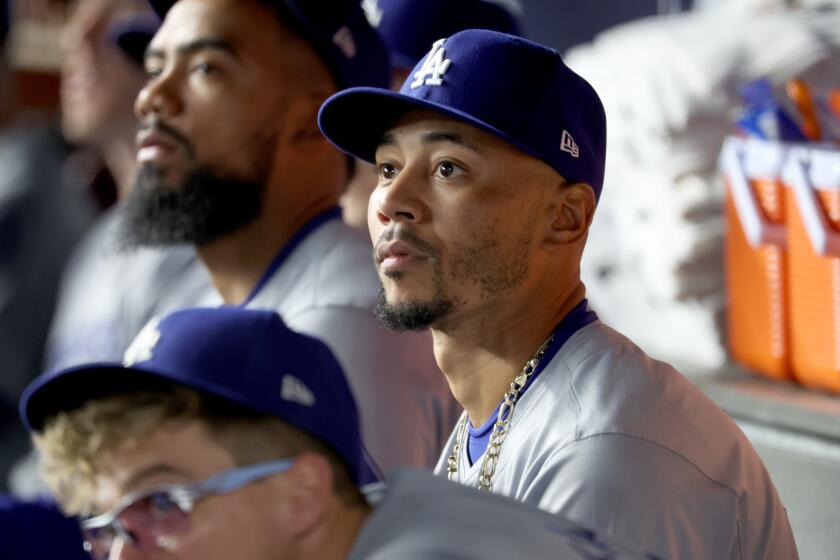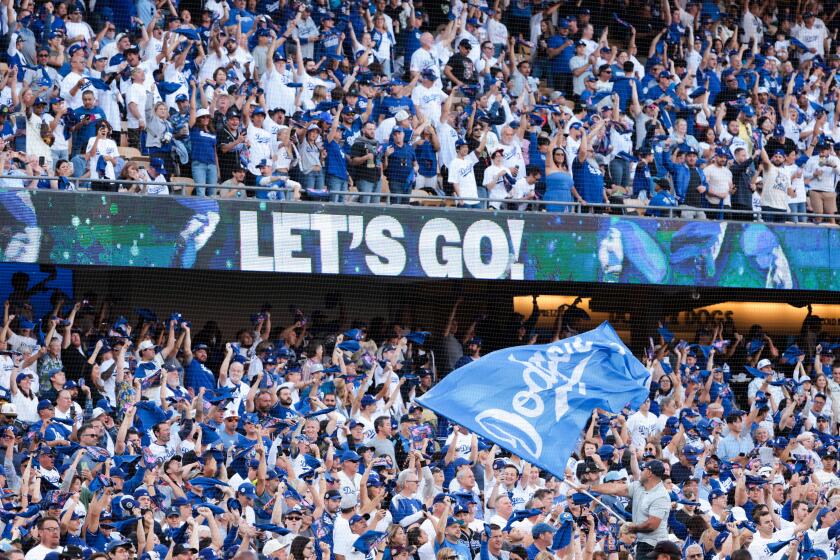Give this Dodgers’ title an asterisk, one that signifies a season of unique difficulty
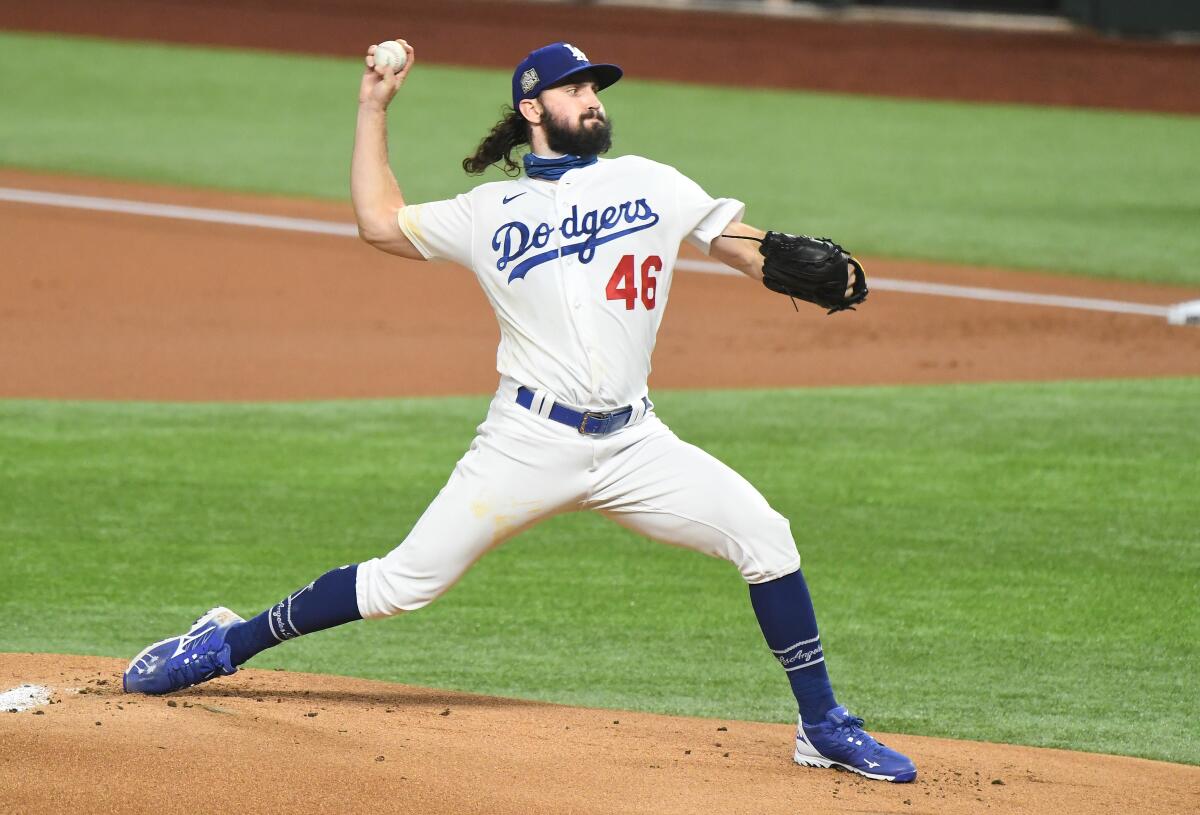
ARLINGTON, Texas — Go ahead and put that asterisk on this season after all.
This Dodgers’ championship, clinched with a 3-1 win over the Tampa Bay Rays in Game 6 of the World Series on Tuesday night, should stand out. Not because it was easier. Or because a title this year somehow meant less.
Quite the contrary actually, at least in the Dodgers’ opinion.
This pandemic-altered season not only was unlike any other, the players believe it was harder than any before it too — a test of mental fortitude and personal sacrifice that should come with a footnote, that should be treated with extra recognition, that should forever be viewed in a different light.
“In a lot of ways,” Justin Turner said before the game, “it’s been more challenging.”
It certainly turned out that way for Turner, who tested positive for the coronavirus and was removed in the eighth inning of Game 6 of the World Series on Tuesday. It was a sobering reminder of how the postseason could have been jeopardized at any point because of the virus.
Social and public gatherings are one of several reasons why Southern California remains stuck in a coronavirus limbo, experts say.
The season was shorter, but the playoffs were longer. There was less travel but more stress. The Dodgers had the National League’s best record, yet enjoyed virtually none of the benefits of a normal No. 1 seed. And after abiding by health and safety protocols all season, they spent the last three rounds of the playoffs in a makeshift hotel bubble in North Texas.
When it all finally ended, a 32-year wait for the Dodgers’ seventh all-time championship snapped, the team’s celebration at Globe Life Field made it clear.
This accomplishment wasn’t normal. It signified so much more.
“All the things we had to deal with — you could argue to say that it’s even more difficult,” manager Dave Roberts said. “Not even talking about playoff format, just all the things we had to do, as opposed to the long, rigorous six weeks spring training, 162, the regular format.”
Dodgers third baseman Justin Turner received word that he’d tested positive for the coronavirus during Game 6 of the World Series and was removed.
The postgame celebration underlined much of the uncertainty surrounding this season. Turner emerged from the dugout, knowing he had tested positive, yet began posing for photos with the trophy and trading handshakes and hugs with his teammates — some masked, some not.
Andrew Friedman, the team’s president of baseball operations, explained postgame that most people within the Dodgers’ bubble had already been exposed to Turner.
“Now it’s important that we all test negative, however many times or whatever the protocols are, to make sure that we don’t go out and potentially spread it to other people,” Friedman said. “We’ve all been in a bubble, so I think the amount of contact and interaction between us, that have been in that bubble, is pretty high.”
But amid that backdrop, there was one question notably absent from postgame news conferences. The validity of this title was no longer called into doubt.
The Dodgers had been pressed on the legitimacy topic ever since the season got underway this summer. Many wondered whether a championship this fall would fill the void left by World Series defeats in two of the previous three years, or if the presumptive title favorites could truly fulfill their potential in a regular season with only 60 games.
The team’s answers, however, have never wavered.
“Obviously we understand that it’s a different season,” Turner said before Tuesday’s game. “That was one of the first things we talked about when we got back together: Look, no matter how many games we play, no matter what the postseason looks like, if there’s a championship to be won, we’re going to go after that and do everything in our power to bring it home.”
The baseball alone was tough enough, especially in a postseason that subjected the top-seeded Dodgers to a crapshoot best-of-three wild-card series, forced them to play a seven-game National League Championship Series in seven days, and pitted them against the best team from the American League.
But all the other factors — the social distancing requirements and constant COVID testing and removal of in-game video review and all-around uncertainty of a season played amid a global health crisis — wore the Dodgers down just as much.
The Dodgers defeated the Tampa Bay Rays 3-1 in Game 6 of the World Series to win their first championship since 1988.
“I think for us, off the field was a bigger challenge,” said Kiké Hernández, whose wife is expecting their first child soon. “The whole COVID thing affected a lot of peoples’ routines. For me, being from Puerto Rico, I haven’t seen my family in a really long time, and I think there’s a lot of people in that clubhouse that can share that sentiment, that haven’t seen their families in a really long time. Besides baseball, the most challenging part was dealing with the daily life as it is.”
Those disruptions aren’t going away any time soon. But Tuesday’s triumph will make them feel far more manageable. For the Dodgers, the steepest mountain has now been climbed. Their most difficult task has culminated in a long-sought title.
“There should not be an asterisk,” Roberts said. “And I stand by that.”
Or at least not a footnote with a negative connotation. Maybe a gold star instead, or an underlined emphasis in MLB’s record books.
This wasn’t any normal championship, after all. Some type of enhanced distinction is probably deserved.
“There’s a lot of things that go into this,“ Turner said, back before his postgame celebration was put under the microscope, back when simply claiming a World Series ring was still front of mind. “You can make an argument to say it might be even more difficult.”
More to Read
Are you a true-blue fan?
Get our Dodgers Dugout newsletter for insights, news and much more.
You may occasionally receive promotional content from the Los Angeles Times.

